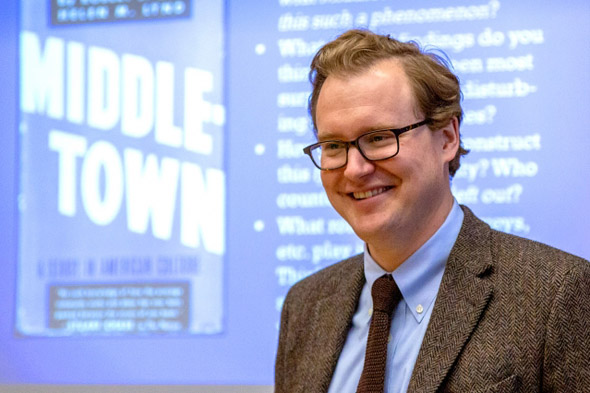The quest to understand human society scientifically
In STS.047 (Quantifying People), MIT students explore the history of science from the 17th century to the present, through the eyes of statisticians and sociologists.

“There’s this idea that by working with numbers people aren’t making moral judgments, but that’s a really dangerous assumption. This should be a required class.”
— Jordan Browne '19, Mathematical Economics
Is it appropriate to evaluate the causes of suicide but dismiss mental illness as a contributing factor? What happens when you talk about war deaths as colored wedges on a chart? Does that change the conversation in important ways?
MIT students grappled with these and similar questions this spring in STS.047 (Quantifying People), a new subject focused on the history of the quest to understand human society scientifically. William Deringer, the Leo Marx Career Development Assistant Professor of Science, Technology, and Society, says he developed the class to enable students to explore the questions that motivate much of his own research: “Why do we invest so much trust in numbers, and what are the consequences for who we are?”
Deringer has written a book on the subject, Calculated Values: Finance, Politics, and the Quantitative Age (Harvard University Press, 2018), in which he examines the history of human efforts to use statistics to influence opinions and shape policy. “Many MIT students will likely be practitioners in the data field, so I want to encourage them to think about these issues,” he says.
More SHASS stories about Teaching and Learning
Suggested links
MIT Program in Science, Technology, and Society